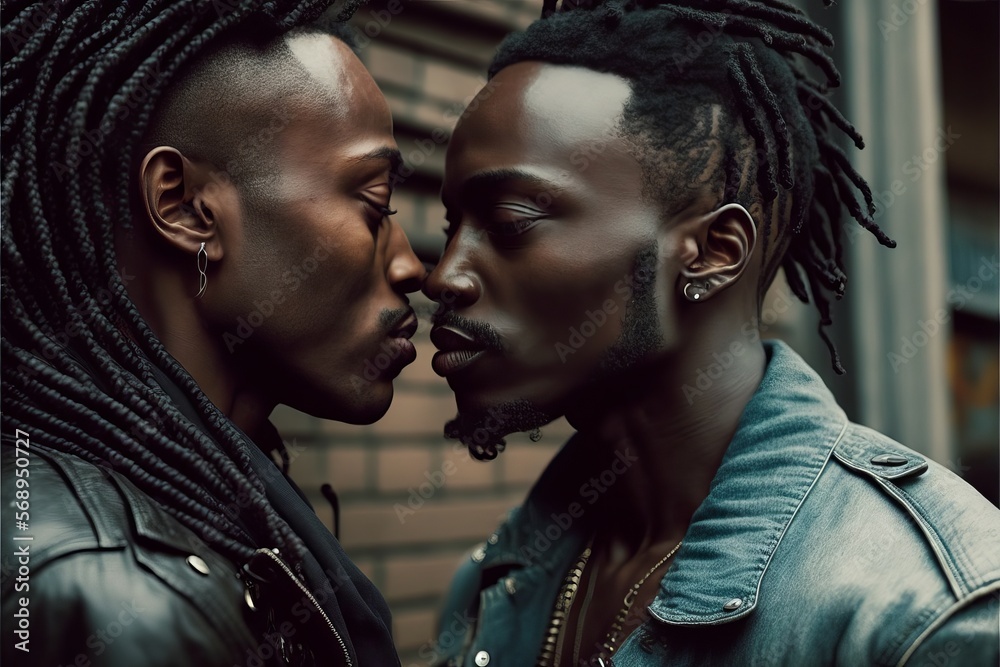Black gay relationships sat at the very edge of race, sexual orientation, identity and culture, with layers of complexity and intricacy that all brought different complexities. These are relationships that must cope not just with the same societal expectations as all romances, but also with special challenges associated with their duality.
Black gay relationships are different, mainly because they intersect with discrimination due to race and sexual orientation. Participants in these relationships are marginalized from both the Black community and the LGBTQ+ community more broadly. There’s racism among LGBTQ+ groups and homophobia among Black groups that makes one feel like you don’t belong anywhere.
These intersectoral relations look into the influence of overlapped identities on experience. Black gay couples are often forced to deal with extra discrimination and prejudice. It isn’t simple to manage these identities without a careful recognition of the centrality of race, gender and sexuality in relational dynamics.
Communication is key to a healthy relationship, especially when it comes to Black gay relationships where culture and social forces magnify miscommunications and fights. Talking clearly helps partners communicate their fears, hopes and weaknesses, so it is essential to breaking through societal biases and learning from each other.
Black gay sex relationships are also affected by social and cultural conditions. Norms and culture push people to be stereotypically or otherwise disavowed as their fullest selves. The pressure can also cause conflict in the relationships – for example, around gender, masculinity or femininity, and traditions.
Black gay relationship includes self-love and identity-discovery. They tend to help each other deal with their polyglot identities, including internalized racism, heteronormativity and learning to be everything they are.
This mental health and wellbeing issue can become a big one in Black gay relationships. The trauma of minority stressors (discrimination, community support, etc) can be severe. It’s a matter of accessing culturally appropriate mental health professionals to ensure well-being.
Black gay relationships are in general very complex, deep and extremely subtle, that take courage and resilience to create and sustain. If you know what you’re up against, embrace intersectional identities and open up, these relationships can survive despite all odds, if you are mentally healthy and accept of yourself.
Amid layered discrimination, Black gay people are often left fighting for the love of their lives on multiple fronts. Homophobia and racism both compel ever-present negotiation of who we are and what we are allowed to be in rarely welcoming environments.
These connections are embodiments of intersectionality as defined by theorists such as Kimberlé Crenshaw. Racial and sexual identities collide and couples must learn the most rooted cultural norms, and learn how to accommodate each other across prejudiced terrain.
Debris-ful of cultural diversity, communication in Black gay relationships requires sensitive listening to both partners’ lived experiences and points of view. Emotional intelligence and empathy become the essential conduits of connection when they are misinterpreted due to external demands.
Black gay relationships are dominated by perceptions and cultural standards from outsiders. Cultural allegiances versus self-awareness often come at a high cost, as partners fight to be real while their families and friends have different expectations.
Managing identity and self-love in Black gay relationships is about cutting through layers of social and internal taboos. It’s an escape from selfhood, enabled by accepting partners who help one be themselves.
Mental health is part of Black gay couple health as a whole. There are supportive networks and culturally responsive mental health services available to support you with the stresses of these relationships, to support resilience and emotional wellbeing.
These connections are embodiments of intersectionality as defined by theorists such as Kimberlé Crenshaw. Racial and sexual identities collide and couples must learn the most rooted cultural norms, and learn how to accommodate each other across prejudiced terrain.
Basically, Black gay relationships need care, they need to be educated about and are committed to breaking through stigmas. Such partnerships depend on truth, and the grace of different identities, and are a powerful reminder of love’s capacity to transcend all prejudice and injustice.
